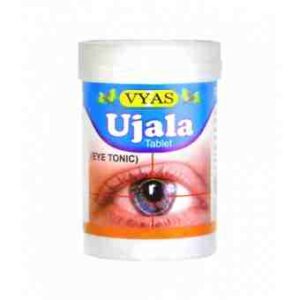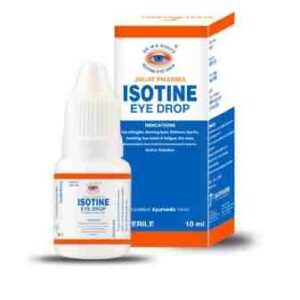Sugar cane (Saccharum officinarum). Contains useful substances and microelements. Rich in carbohydrates, necessary for the breakdown of organic compounds in biochemical reactions, which release energy into the cell. Indispensable for maintaining mental activity. Promotes the opening of energy reserves in the body. Normalizes digestion, as it is rich in organic fibers.
Patala (Stereospermum suaveolens). One of the most famous tonic natural herbal remedies with a rejuvenating effect. The plant has a number of properties that allow it to treat a variety of ailments. Effectively removes tissue swelling and inflammation, fights pathogens. Helps with respiratory diseases, treats cough. Helps improve the functioning of the gastrointestinal tract, eliminates symptoms of indigestion.
Aegle marmelos. Cleanses blood even from deep toxins. Beneficial for the nervous system, stops dry cough, relieves insomnia. Used for nutrient absorption disorders, diarrhea, dysentery, diabetes. Astringent, antipyretic, enhances digestive fire. Has anthelmintic and antispasmodic effects.
Shionaka (Oroxylum indicum). It is considered an effective tonic for the liver and the entire body. It is part of the well-known healing formulas of Ayurveda – Chyawanprash and Dashamula. It has a pronounced antioxidant effect, prevents the formation of free radicals that destroy most of the nutrients and vitamins that enter the body with food. It has an analgesic, anti-inflammatory, diaphoretic, disinfectant, astringent and regenerating effect. The seeds, roots and shoots of the plant are actively and widely used in Ayurveda as a means of treating respiratory infections, increasing immune protection, as well as in the therapy of joint diseases and gastrointestinal tract organs. It prevents the development of fungal infections, accelerates the regeneration of ulcers and damaged internal tissues, tones and rejuvenates the body.
Gokshura (Tribulus terrestris). The most popular plant in Dashamula. It helps to improve the health of the urinary system and has a tonic effect on it. It cleanses the kidneys and liver thanks to silicic acid, which Gokshura is rich in. It helps with joint diseases. It helps to remove excess fluid from the body, eliminates swelling, and is used in the treatment of urolithiasis. It has a selective anti-inflammatory and bacteriostatic effect on the urinary system. In addition, it improves sperm quality, increases potency, and serves as an excellent means of preventing prostatitis and adenoma. Restores the balance of Vata dosha.
Brihati (Solanum indicum). A strong antioxidant. Balances the vital systems of the body. Beneficial for the bronchopulmonary and digestive systems, eliminates bloating and gas formation. Has antiseptic, analgesic, anti-inflammatory, anti-allergenic, bronchodilator and diuretic properties. Belongs to Rasayanas, is a rejuvenating plant that has been used for thousands of years in Ayurvedic medicine as a general tonic for the body.
Prishniparna (Uraria picta). Has antioxidant, tonic, anti-inflammatory, disinfectant, antipyretic and action, stimulates sputum separation. Also serves as a means to stop bleeding and strengthen the walls of blood vessels.
Kantakari (Solanum xanthocarpum). Restores potency and treats infertility by stimulating the production of corticosteroids and sex hormones. Helps reduce excess weight, helps with infertility, menstrual irregularities, heart and joint diseases. Often recommended for cholelithiasis, as well as respiratory infections and bronchopulmonary diseases, asthma. The alkaloids in the plant eliminate chronic cough and rhinitis caused by cold air or a strong odor. The plant also has a moderate diuretic effect.
Agnimantha (Premna integrifolia). Stimulates blood circulation, relieves inflammation and swelling. Penetrates deep into muscle tissue and blood vessels, accelerates the healing of bruises and hematomas.
Pippali (Piper longum). It is considered an excellent stimulant for the bronchopulmonary system and gastrointestinal tract. It causes a strong warming effect, removes phlegm and Ama (mucus). Increases and restores energy tone. It is an effective antioxidant for the bronchopulmonary system. As part of a milk decoction, it is effective in the treatment of bronchopulmonary diseases, such as tuberculosis, asthma and bronchitis.
Pistachio (Pistacia). These nuts are very beneficial for the human body, as they help reduce the risk of cardiovascular disorders, lower cholesterol levels in the body and strengthen the walls of blood vessels. Research by medical scientists proves the beneficial effect of pistachios on the biochemical composition of blood, blood circulation, and normalization of reproductive functions in both men and women. In addition, the vitamins contained in the nuts have a very positive effect on a person’s overall well-being, increasing their vitality.
Guduchi (Tinospora cordifolia). A medicinal plant used to treat various diseases. It has an immunostimulating effect, is an excellent antioxidant and is effective against general weakness of the body. Stops premature aging, cleanses the body of toxins. Helps improve mental performance. Protects the nervous system from stress, anxiety and depression. Strengthens memory, rejuvenates the entire body, increases energy and appetite.
Haritaki (Terminalia chebula). A well-known rejuvenating plant. It has a beneficial positive effect on memory and vision, treats diseases of the respiratory and digestive systems, acts as a mild laxative. It helps to increase immunity and helps to get rid of parasites, restore normal intestinal microflora.
Cinnamon (Cinnamomum zeylanicum). The seeds of the plant are rich in essential oils, zinc, calcium, vitamins A and B, magnesium, sodium and phosphorus. It has a beneficial effect on the nervous system. Relaxes, soothes and alleviates signs of depression, apathy, gives a state of lightness and peace. It is a wonderful remedy for the prevention of respiratory diseases, in the treatment of pharyngitis, lingering cough. It is an effective remover of mucus and phlegm, removes it from the lungs and bronchi in asthma, bronchitis. Restores the proper functioning of the digestive system. Eliminates symptoms of overeating, a feeling of heaviness with indigestion, diarrhea, flatulence.
Cloves (Syzygium aromaticum). Cloves have many healing properties due to the eugenol they contain (85%) – an essential oil that has antiseptic and antispasmodic effects, as well as diuretic and disinfectant.
Instructions
According to Ayurvedic traditions, Chyawanprash is consumed 15-20 minutes before meals, washed down with water, milk or herbal tea.
Adults: 1/2 to 2 teaspoons 2 times a day for vitamin and microelement deficiencies, stress or weakness, and to increase the body’s overall resistance, especially during recovery.
For children aged 4 years and over: 1/4 to 1 teaspoon 2 times a day with milk or other liquid (you can mix Chyawanprash in liquid)
For elderly people: It is recommended to take 1/3 teaspoon of Chyawanprash 2-3 times a day.
For people with problems of the nervous and cardiovascular systems: It is recommended to take only 1/3 teaspoon in the morning for 10 days, then add a daytime intake of 1/3 teaspoon (10 days) and only after that can you start taking it three times a day.
For chronic diseases and acute infections, take 1 teaspoon 3 times a day.
For chronic gastritis, stomach ulcers with high acidity, diseases of the nervous system, cardiovascular and respiratory systems. Should be taken 30-40 minutes after meals.
Recommendations for use:
A 3-month course if you are using Chyawanprash for the first time. Elderly people are recommended to take at least 2 courses per year.





Reviews
There are no reviews yet.